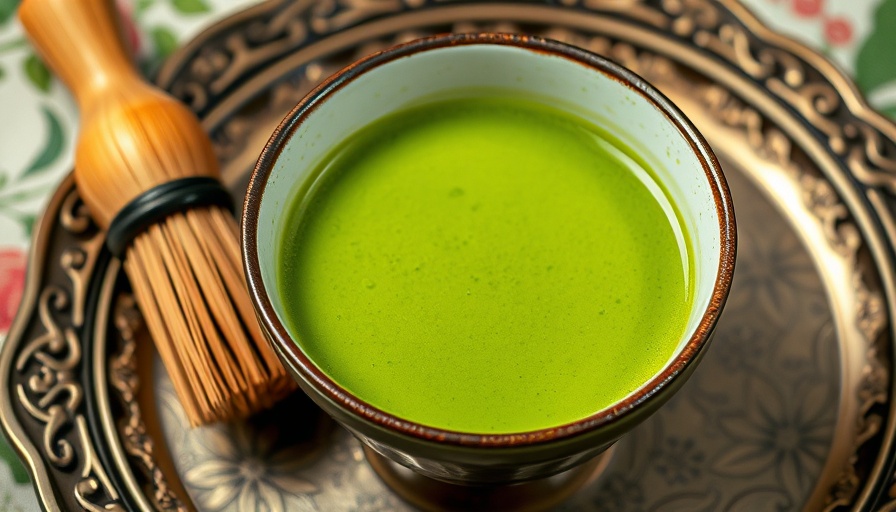
Exploring the Rich Heritage of Matcha Green Tea
The history of tea dates back to ancient China, where it first emerged in the Han Dynasty around the 2nd century BC. Over the centuries, tea has transformed, culminating in various forms, one of which is matcha. This powdered green tea is revered not only for its unique preparation and flavor but also for its outstanding health benefits. With a base in folklore and rich tradition, matcha continues to captivate tea lovers globally, particularly in health-conscious circles.
What Exactly is Matcha Green Tea?
Derived from the Camellia sinensis plant, matcha is distinct from other green teas due to the specialized process through which it's cultivated and prepared. Farmers shade the plants for three weeks before harvest, a method that enhances chlorophyll production and increases the amino acid theanine, resulting in a rich green hue and a unique flavor profile. The hand-picked leaves are then meticulously ground into a fine powder, a process that preserves the plant's nutrients better than that of traditional tea leaves.
Health Benefits of Matcha: Why Choose It?
Matcha is not just another trendy beverage; it comes packed with health benefits, making it a superior choice compared to other green teas. For instance, a study highlighted that matcha contains higher levels of antioxidants, specifically catechins, which help combat free radicals and reduce cell damage. The presence of L-theanine offers a calming effect, contrasting with the jitters often associated with caffeine, promoting a smoother energy boost.
Versatile Ways to Incorporate Matcha into Your Diet
Integrating matcha into your daily routine can be both easy and versatile. Whether sipping on a traditional matcha tea, adding it to smoothies, or using it in baking recipes, the possibilities are endless. For instance, a matcha latte made with almond milk adds both flavor and nutritional value to your morning routine. Culinary-grade matcha can also enhance dishes such as salads and desserts, making healthy eating a delightful experience.
Insights on Safety and Moderation
Despite its numerous benefits, balance is essential when consuming matcha. It is important to remember that it contains more caffeine compared to regular green tea. For most, the recommendation is to enjoy 1-2 cups daily while opting for organic varieties to minimize exposure to potential contaminants. Adopting a moderate approach ensures that consumers reap the benefits without overwhelming their bodies.
A Final Word on the Cultural Relevance of Matcha
Beyond its health benefits, matcha carries a cultural significance, particularly in Japanese tea ceremonies, where it symbolizes harmony, respect, purity, and tranquility. This cultural context enhances the enjoyment of matcha, turning each cup into a moment of mindfulness and connection with traditions that span centuries.
Engage with Matcha: Enhance Your Lifestyle
As matcha continues to grow in popularity, incorporating it into your lifestyle offers a blend of health benefits and culinary creativity. Participate in community workshops or local matcha-themed events to deepen your appreciation for this remarkable tea. Embracing matcha can lead to both personal wellness and community engagement, fitting into the narrative of sustainable living.
 Add Row
Add Row  Add
Add 




 Add Row
Add Row  Add
Add 

Write A Comment